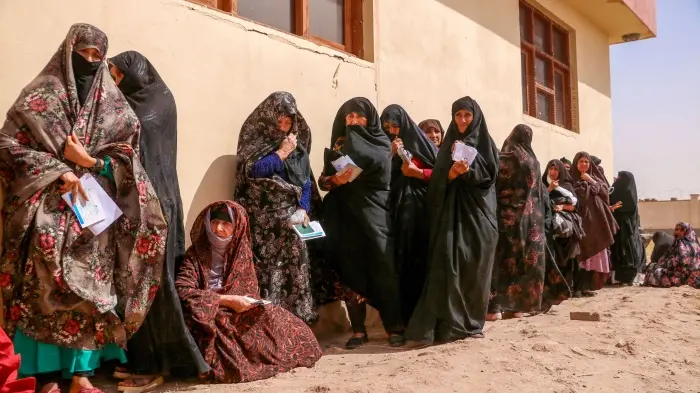Islamabad, April 02: Pakistan has postponed its March 31 deadline for the deportation of hundreds of thousands of Afghan refugees, citing the Eidul Fitr holidays, a government official confirmed on Tuesday.
The deadline, initially set as part of Pakistan’s broader efforts to repatriate Afghan nationals, has been extended until early next week to accommodate the holiday period.
Once the new deadline expires, Afghan Citizen Card (ACC) holders—who number around 800,000 according to United Nations estimates—will be subject to deportation.
Meanwhile, over 1.3 million Afghans with Proof of Registration (PoR) cards, issued by the UN Refugee Agency (UNHCR), will be relocated outside Islamabad and Rawalpindi.
Pakistan’s Afghan Population and the Surge in Deportations
Pakistan is home to nearly three million Afghan refugees, many of whom fled decades of conflict in Afghanistan. The number of arrivals surged after the Taliban regained power in 2021, intensifying concerns about security and migration.
Since Islamabad’s 2023 ultimatum ordering undocumented Afghans to leave the country, more than 800,000 Afghan nationals have returned to Afghanistan between September 2023 and March 2024, according to UN data.
Human Rights Concerns and Diplomatic Tensions
Human rights organizations have condemned Pakistan’s deportation efforts.
Moniza Kakar, a Pakistani human rights lawyer, warned that many Afghan refugees have lived in Pakistan for years or even decades and now face an uncertain future if forced to return.
“Many have been living in the country for years, and going back means going back to nothing,” Kakar said.
Pakistan’s relations with the Taliban government have remained strained, with Islamabad accusing Kabul of harboring militants—a charge the Taliban denies.
In March 2024, a Pakistani delegation met with Afghan officials in Kabul to emphasize regional security cooperation.
For its part, the Taliban administration has urged host countries to ensure a “dignified” return for Afghan refugees.
Prime Minister Hassan Akhund called on nations not to forcibly expel Afghans, instead requesting international support for voluntary repatriation efforts.
“We ask that instead of forced deportation, Afghans should be supported and provided with facilities,” Akhund stated in his Eid message, delivered before Pakistan’s initial March 31 deadline.
The Road Ahead
As the extended deportation deadline approaches, uncertainty looms for thousands of Afghan refugees in Pakistan.
With diplomatic tensions simmering and humanitarian concerns mounting, all eyes are on how Islamabad proceeds with its relocation and repatriation policies in the coming weeks.









